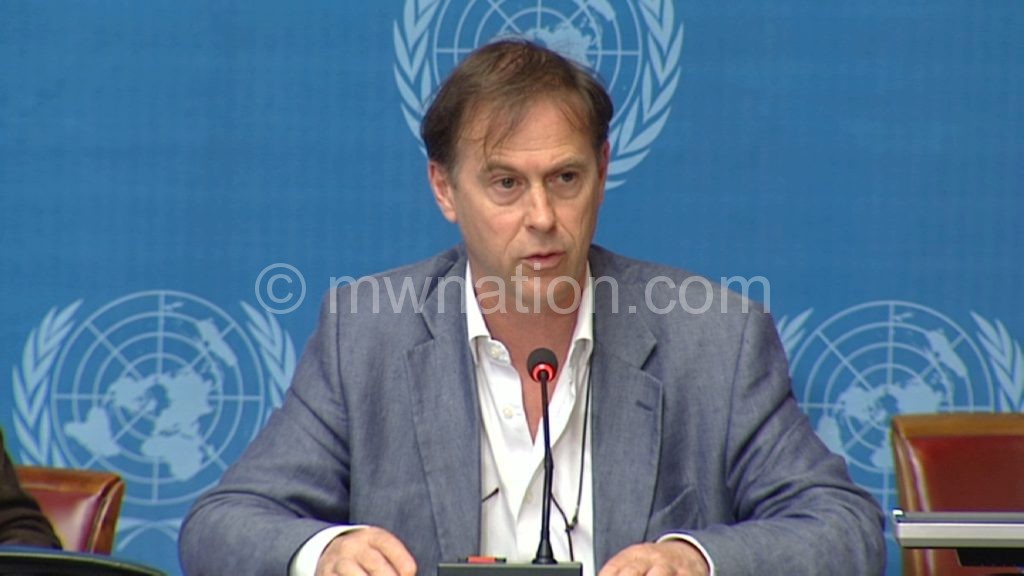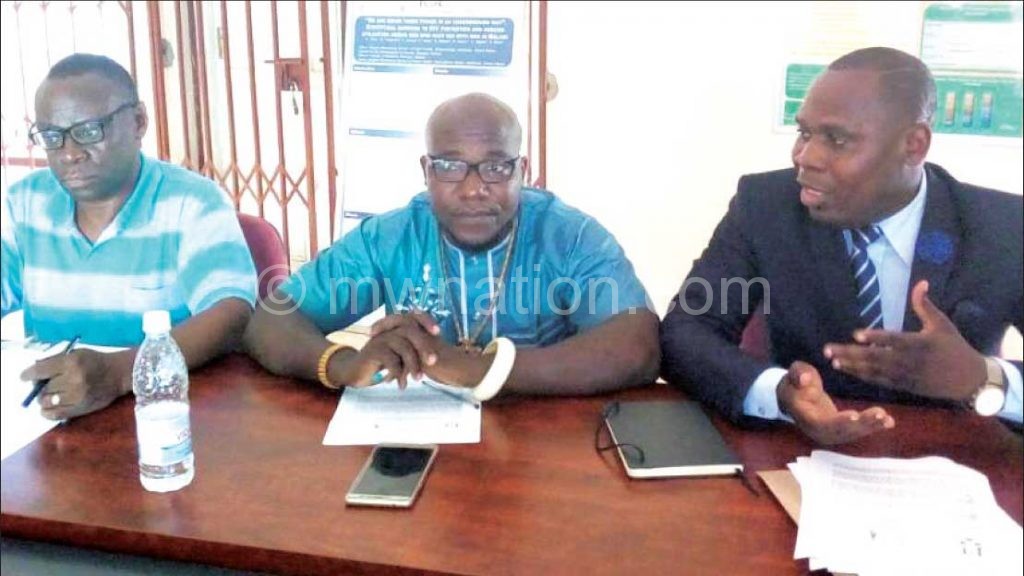UN rights’ body wants meaningful dialogue
The United Nations High Commissioner for Human Rights (UNHCHR) has urged government and stakeholders to urgently engage in a genuine and meaningful dialogue to address the prevailing political, social and economic grievances of the population.
The UN body said this would help reduce tension that has gripped the country since anti-Jane Ansah demonstrations started in June, protesting the outcome of the May 21 2019 Tripartite Elections, otherwise “there is a serious risk the situation will spiral out of control.”

UNHCHR said in a statement issued on Fridayat its headquarters in Geneva, Switzerland, it was “very concerned” by lack of meaningful dialogue to halt the mounting tension in the country and an increase in violent protests.
The body’s call comes when there is already a dialogue process facilitated by the Public Affairs Committee (PAC) to find a lasting solution to the impasse.
PAC already met all the relevant stakeholders, including President Peter Mutharika, Malawi Electoral Commission (MEC) chairperson Jane Ansah and leaderships of major opposition parties and Human Rights Defenders Coalition (HRDC), and is expected to meet for a second phase of dialogue.
The United Nations (UN) delegation in Malawi also lined up a series of meetings for mediators and stakeholders involved in the demonstrations to understand how the UN could best support and intervene in the situation. The delegation already met former president Bakili Muluzi. UNHCHR reminded authorities of their obligation to respect the rights of freedom of expression and peaceful assembly, and to distinguish between violent actors and peaceful demonstrators.

“We urge demonstrators to express their grievances peacefully, without resorting to violence,” reads the statement signed by UNHCHR spokesperson Rupert Colville.
Demonstrations, organised by HRDC and supported by main opposition parties, started following the disputed May 21 election results.
The demos have become increasingly violent, looting peoples’ property, and resulting in the death of a senior police officer at Msundwe in Lilongwe and a civilian in Karonga.
“In some instances, security forces have resorted to the pre-emptive use of tear gas prior to the start of demonstrations…. A number of protesters have also been acting increasingly violently,” observed UNHCHR.
“We also remind the authorities that the use of force during demonstrations should only be applied in exceptional circumstances, in accordance with applicable international human rights norms and standards, including the principles of legality, necessity and proportionality.
“In the case of violent demonstrations, law enforcement officials may use firearms only when less dangerous means are not practicable and only to the minimum extent necessary.
“In any event, intentional lethal force with firearms by law enforcement officials is prohibited, except as a last resort to protect against an imminent threat of death or serious injury,” reads the statement.
The body also called for prompt, independent and thorough investigations into allegations of misconduct by security forces, including those resulting in death or injury.
In an interview, Gift Trapence, vice-chairperson of HRDC, organisers of the demonstrations, said they were in support of the UN position.
“In fact, HRDC has always been in support of dialogue that is genuine and has the best interest of Malawians. HRDC has always condemned violence of any kind. But our position has always been that whoever is involved in violence should face the law, including the cadets who stoned and assaulted Billy Mayaya in Blantyre. We don’t want selective justice,” he said.





